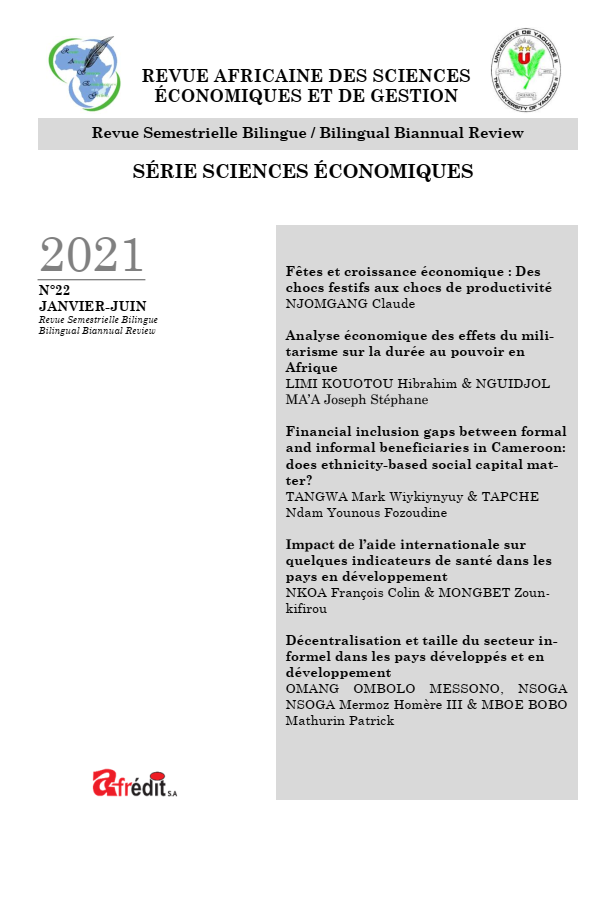
Financial inclusion gaps between formal and informal beneficiaries in Cameroon: does ethnicity-based social capital matter?
TANGWA Mark Wiykiynyuy & TAPCHE Ndam Younous Fozoudine
Dans RASEG, La Revue 2023 (N° 22) , PAGES 93 – 149 Télécharger
Abstract: This paper examines the financial inclusion gap between formal and informal beneficiaries in Cameroon using the 2017 Finscope survey. Specifically, the paper (a) measures the marginal effect of ethnicity-based social capital on financial inclusion and (b) assesses the relative contribution of ethnicity-based social capital in explaining the components of the financial inclusion gaps between formal and informal beneficiaries. Thus, a binary Probit model and Fairlie decomposition technique were used. We find that households belonging to an ethnic group association are more inclined to save and borrow from an informal financial service provider as compared to their formal counterparts. Decomposition results show that rural households are significantly less likely to have a formal account, formal savings, formal credits and informal savings but more likely to access informal credits. Also, formal beneficiaries witnessed gender disparities in favour of male while informal beneficiaries witnessed gender disparities in favour women. However, women are more likely to resort to informal financial providers for financial needs. Policy implication suggests: the nurturing and encouragement of traditional cultures, kinship, and identity; Formal financial institutions should increase branches in areas with diverse ethnic associations especially in rural areas.